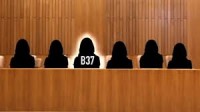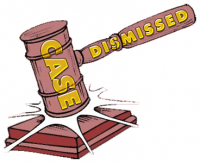
Barral v. State (Nev. Supreme Ct. – July 23, 2015)
The issue is whether a district court commits structural error when it fails to administer an oath to the jury panel, pursuant to NRS 16.030(5), prior to commencing voir dire.
Barral was charged with sexually assaulting a child. His case proceeded to a jury trial. At the beginning of voir dire, both the prosecution and defense explained to the potential jurors the importance of answering their questions honestly. After questioning the first potential juror, the following bench conference took place:
MR. BECKER [for Barral]: My recollection may not be correct, but I think it’s possible that the panel was not sworn in.
THE COURT: They aren’t.
MR BECKER: Okay.
THE COURT: I don’t swear them in until the end.
MR. BECKER: Okay. In other words, admonish [the jury] that they are to give truthful answers to all the questions—
MS. FLECK [for the State]: Yeah[.]
MR. CASTILLO [for Barral]: That’s fine.
….
THE COURT: —I won’t swear them in.
MR. BECKER: Okay.
THE COURT: Because the ones who are sworn in; that’s the panel.
MR. BECKER: Right.
….
MS. FLECK: But do we have to give them the oath that they have to tell the truth[?]
THE COURT: No.
MS. FLECK: Or no?
THE COURT: No.
MS. FLECK: Okay.
THE COURT: No.
MS FLECK: Okay.
The court then proceeded with voir dire. The district court clerk swore in the petit jury at the beginning of the second day of trial. After both parties rested and presented closing arguments, the jury deliberated for approximately three hours and returned guilty verdicts on both charges. Following a post-trial motion for acquittal that the court denied, Barral appealed.
Barral claimed that the district court committed structural error requiring reversal when it failed to comply with NRS 16.030(5) and administer the oath to the jury venire before voir dire. He argued that the court’s error compromised his right to trial by an impartial jury because potential jurors may not have felt obligated to respond truthfully during voir dire, as the court did not place them under oath. The State contended that the potential jurors understood that they were required to answer truthfully because the court and counsel for both sides repeatedly stressed to the venire the importance of answering their questions honestly. The State also argued that the court’s error did not undermine the framework of the trial.
The Nevada Supreme Court noted that although NRS 16.030(5) is articulated in the civil practice section of the Nevada Revised Statutes, it applies to criminal proceedings through NRS 175.021(1). The Court explained that NRS 16.030(5) does not give the district courts discretion: “the judge or the judge’s clerk shall administer an oath or affirmation.” Thus, the Court concluded that the district court violated NRS 16.030(5) in the instant case when, according to its apparent general preference, it failed to administer the oath to the venire. Neither party disputed that the district court erred by violating NRS 16.030(5). However, a district court’s error will not always entitle a convicted defendant to a new trial. The type of relief, if any, to which a criminal defendant is entitled following a trial court’s violation of NRS 16.030(5) was an issue of first impression for the Court.
Continue reading “Is it a constitutional error when a judge fails to swear in potential jurors?”









